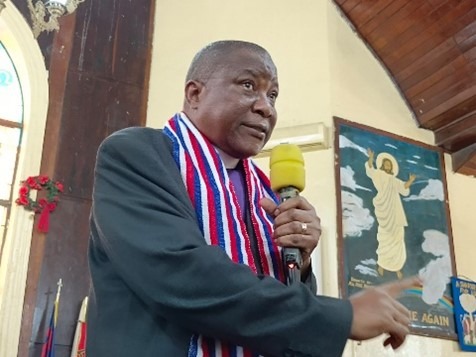Bishop Samuel Quire, the head of the United Methodist Church in Liberia, has issued a stark warning about the potential for social unrest and political instability in the country, driven by the escalating crisis of drug abuse among disadvantaged youth. Speaking at the graduation ceremony of a drug rehabilitation program, Bishop Quire stressed the urgent need for concerted action from parents, government officials, and all stakeholders to address this growing threat. He painted a grim picture of a future where these marginalized young people, feeling abandoned and forgotten, could resort to extreme measures, including a coup d’état, to express their discontent and desperation.
The Bishop’s warning was not simply a hypothetical caution; it was rooted in the alarming reality on the streets of Monrovia. He highlighted the concerning trend of these youths organizing themselves into territorial zones, each with its own “general,” a clear indication of their growing sense of alienation and potential for coordinated action. Beyond their organization, Bishop Quire emphasized the sheer numerical strength of these at-risk youth, suggesting their numbers could easily overwhelm the existing security apparatus and pose a significant threat to the stability of the nation. He warned that no one, not even government officials or religious leaders, would be immune to their potential wrath.
Bishop Quire’s admonishment went beyond simply highlighting the danger; he also criticized the pervasive culture of inaction and empty promises that has characterized the response to the drug crisis. He condemned the lack of concrete action, despite repeated calls for intervention, and lamented the tendency of politicians to exploit these vulnerable youths for their own political gain, while simultaneously neglecting their rehabilitation and reintegration into society. This exploitation, he argued, further exacerbates the cycle of marginalization and resentment, pushing these young people further towards the fringes of society and increasing the likelihood of desperate actions.
Jefferson Knight, the coordinator of the New Life Recovery Program, provided further context to Bishop Quire’s warning, revealing the stark statistics of the drug crisis in Liberia. Based on a survey conducted with international partners, Knight estimated that approximately 250,000 people in Liberia are struggling with drug addiction, a staggering figure in a nation with a population of roughly 5 million. He further underscored the devastating consequences of this epidemic, reporting that over one thousand young people have lost their lives in recent years due to drug-related causes. These alarming numbers paint a grim picture of a generation lost to addiction, a generation that, without intervention, poses a significant threat to the future of the country.
The New Life Recovery Program, where the graduation ceremony was held, offers a glimmer of hope amid this crisis. Knight announced that graduates of the program would receive scholarships for vocational training in areas such as computer skills, soap-making, and baking, providing them with the tools and resources necessary to rebuild their lives and reintegrate into society. These skills are essential not only for their individual livelihoods but also for their ability to contribute meaningfully to the economy and break free from the cycle of poverty and addiction.
The graduation ceremony, held at the United Methodist Church compound in Sinkor, Monrovia, was attended by a diverse group of individuals, highlighting the importance of a multi-faceted approach to addressing the drug crisis. The presence of government officials, including Agriculture Minister Alexander Nuetah and former Senator Commany Wesseh, demonstrated the government’s recognition of the issue, though Bishop Quire’s words served as a stark reminder of the need for more concrete action. The attendance of religious leaders underscored the important role of faith-based institutions in providing support and guidance to those struggling with addiction. The presence of school administrators from neighboring Guinea, along with parents and other dignitaries, further emphasized the regional implications of the crisis and the need for collaborative efforts to combat drug abuse and its devastating consequences. The graduation ceremony served not only as a celebration of the graduates’ achievements but also as a call to action for the nation to confront the urgent and multifaceted challenge of drug addiction among its youth.


